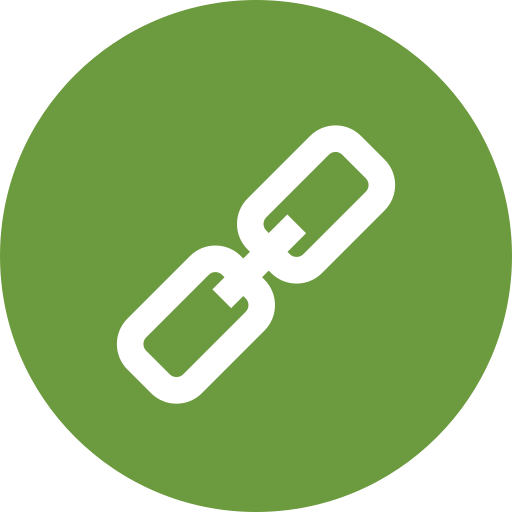| Product name | Per Pill | Savings | Per Pack | Order |
|---|---|---|---|---|
| 30 pills | $0.98 | $29.34 | ADD TO CART | |
| 60 pills | $0.74 | $14.40 | $58.68 $44.28 | ADD TO CART |
| 90 pills | $0.66 | $28.81 | $88.02 $59.21 | ADD TO CART |
| 120 pills | $0.62 | $43.21 | $117.36 $74.15 | ADD TO CART |
| 180 pills | $0.58 | $72.02 | $176.04 $104.02 | ADD TO CART |
| 270 pills | $0.55 | $115.23 | $264.06 $148.83 | ADD TO CART |
| 360 pills | $0.54 | $158.43 | $352.08 $193.65 | ADD TO CART |
| Product name | Per Pill | Savings | Per Pack | Order |
|---|---|---|---|---|
| 30 pills | $0.89 | $26.68 | ADD TO CART | |
| 60 pills | $0.73 | $9.60 | $53.35 $43.75 | ADD TO CART |
| 90 pills | $0.68 | $19.21 | $80.03 $60.82 | ADD TO CART |
| 120 pills | $0.65 | $28.81 | $106.70 $77.89 | ADD TO CART |
| 180 pills | $0.62 | $48.02 | $160.06 $112.04 | ADD TO CART |
| 270 pills | $0.60 | $76.83 | $240.09 $163.26 | ADD TO CART |
| 360 pills | $0.60 | $105.64 | $320.12 $214.48 | ADD TO CART |
Alzheimer's disease is a progressive neurological disorder that affects millions of people worldwide. It is characterized by memory loss, cognitive decline, and changes in behavior. While there is no cure for Alzheimer's, there are medications that can help manage its symptoms and slow down its progression. One such medication is Aricept, which is available in 5 mg and 10 mg doses. In this article, we will delve into the world of Aricept, exploring its uses, benefits, and how to order Aricept or buy Aricept online.
What is Aricept?
Aricept, also known as donepezil, is a cholinesterase inhibitor that works by increasing the levels of acetylcholine in the brain. Acetylcholine is a neurotransmitter that plays a crucial role in memory and cognitive function. By inhibiting the enzyme that breaks down acetylcholine, Aricept helps to improve memory, attention, and communication skills in people with Alzheimer's disease.
Benefits of Aricept
The benefits of Aricept are numerous. Some of the most significant advantages of taking Aricept include:
- Improved memory and cognitive function
- Enhanced communication skills
- Increased ability to perform daily activities
- Slowed down progression of Alzheimer's disease
- Improved overall quality of life
How to Take Aricept
Aricept is available in 5 mg and 10 mg tablets. The recommended dosage is 5 mg per day, which can be increased to 10 mg per day after a minimum of 4 weeks. It is essential to take Aricept exactly as prescribed by your doctor, and not to exceed the recommended dosage.
Where to Buy Aricept
If you are looking to buy Aricept or order Aricept online, there are several options available. You can buy cheap Aricept on line or order Aricept 5 mg overnight delivery from a reputable online pharmacy. Some online pharmacies also offer discount Aricept online amex or buy Aricept with American Express options.
Table: Aricept Dosage and Pricing
| Dosage | Price (without prescription) | Price (with prescription) |
|---|---|---|
| 5 mg | $50-$70 | $30-$50 |
| 10 mg | $80-$100 | $50-$80 |
How to Order Aricept Online
To order Aricept online, follow these steps:
- Order generic Aricept or buy Aricept 5 mg with Visa from a reputable online pharmacy.
- Fill out the online prescription form and provide your medical history.
- Choose your payment option, such as buy Aricept with American Express or buy 5 mg Aricept with Mastercard.
- Review your order and confirm your payment.
Precautions and Side Effects
While Aricept is generally well-tolerated, there are some precautions and side effects to be aware of. Some common side effects include:
- Nausea and vomiting
- Diarrhea
- Headache
- Fatigue
It is essential to consult your doctor before taking Aricept, especially if you have a history of liver or kidney disease.
List of Precautions
- Do not take Aricept if you have a history of liver or kidney disease.
- Do not take Aricept if you are pregnant or breastfeeding.
- Do not exceed the recommended dosage.
- Do not take Aricept with other medications that interact with it.
Conclusion
Aricept is a highly effective medication for managing Alzheimer's disease. With its ability to improve memory and cognitive function, Aricept has become a popular choice among people with Alzheimer's. If you are looking to buy Aricept or order Aricept online, make sure to choose a reputable online pharmacy and follow the recommended dosage. Remember to consult your doctor before taking Aricept, and be aware of the precautions and side effects.
Order Aricept Today
If you are ready to order Aricept or buy Aricept online, click on the link below to visit a reputable online pharmacy. You can buy discount Aricept on line or order Aricept 5 mg without prescription. Don't wait any longer to manage your Alzheimer's symptoms. Order Aricept today and start improving your memory and cognitive function.
Additional Resources
- Aricept 10 mg buy low cost: Visit our website to learn more about Aricept and how to buy Aricept 10 mg at a low cost.
- Aricept 5 mg buy overnight delivery: Click on the link to buy Aricept 5 mg with overnight delivery.
- Purchase Aricept from India: Learn more about purchasing Aricept from India and how to order Aricept online.
By following the guidelines outlined in this article, you can buy Aricept or order Aricept online with confidence. Remember to always consult your doctor before taking any medication, and be aware of the precautions and side effects.
Alzheimer's disease is a progressive neurological disorder that affects millions of people worldwide, causing significant impairment in memory, judgment, and abstract thinking, as well as changes in personality. Dementia, a hallmark symptom of Alzheimer's, can have a devastating impact on patients and their families, affecting daily life, relationships, and overall well-being. While there is currently no cure for Alzheimer's, various treatments and interventions can help manage dementia symptoms, slow disease progression, and improve quality of life. In this article, we will discuss the different approaches to treating dementia in patients with Alzheimer's disease, including pharmacological, non-pharmacological, and lifestyle interventions.
Understanding Dementia in Alzheimer's Disease
Before delving into treatment options, it's essential to understand the complexities of dementia in Alzheimer's disease. Dementia is a broad term that describes a decline in cognitive function, including:
- Memory loss: forgetting recent events, learning new information, and recalling familiar words and names
- Judgment and decision-making: difficulty with problem-solving, making sound judgments, and understanding consequences
- Abstract thinking: trouble with understanding complex concepts, following instructions, and completing tasks
- Personality changes: mood swings, agitation, anxiety, and depression
The progression of dementia in Alzheimer's disease can be divided into three stages:
| Stage | Characteristics |
|---|---|
| Early-stage | Mild cognitive impairment, minimal impact on daily life |
| Moderate-stage | Noticeable cognitive decline, difficulty with daily tasks, and increased dependence on others |
| Late-stage | Severe cognitive impairment, significant personality changes, and complete dependence on others |
Pharmacological Interventions
Pharmacological interventions play a crucial role in managing dementia symptoms in Alzheimer's disease. The following medications are commonly used:
- Cholinesterase inhibitors: These medications, such as donepezil, rivastigmine, and galantamine, work by increasing the levels of acetylcholine, a neurotransmitter involved in memory and learning.
- Memantine: This medication, an N-methyl-D-aspartate (NMDA) receptor antagonist, helps regulate glutamate, a neurotransmitter that can be toxic to brain cells in excess.
- Combination therapy: Using a combination of cholinesterase inhibitors and memantine may provide additional benefits in managing dementia symptoms.
While these medications can help alleviate symptoms, they may not be effective for everyone, and their benefits may be modest. It's essential to work closely with a healthcare provider to determine the best treatment plan.
Non-Pharmacological Interventions
Non-pharmacological interventions can be just as effective as pharmacological treatments in managing dementia symptoms. Some examples include:
- Cognitive training: Engaging in activities that challenge the brain, such as puzzles, games, and memory exercises, can help build cognitive reserve and slow disease progression.
- Physical exercise: Regular physical activity, such as walking, swimming, or yoga, can improve cognitive function, reduce stress, and promote overall well-being.
- Social engagement: Staying socially active, participating in group activities, and maintaining relationships with family and friends can help reduce feelings of isolation and depression.
- Sensory stimulation: Exposure to music, art, and other forms of sensory stimulation can help reduce agitation, anxiety, and stress.
Some benefits of non-pharmacological interventions include:
- Improved cognitive function
- Enhanced mood and reduced stress
- Increased social engagement and interaction
- Better sleep quality
- Reduced risk of falls and injuries
Lifestyle Interventions
Lifestyle interventions can also play a significant role in managing dementia symptoms and slowing disease progression. Some examples include:
- Dietary changes: Eating a balanced diet rich in fruits, vegetables, whole grains, and omega-3 fatty acids can help reduce inflammation and promote overall health.
- Sleep hygiene: Establishing a consistent sleep schedule, avoiding caffeine and alcohol, and creating a relaxing sleep environment can help improve sleep quality.
- Stress management: Engaging in stress-reducing activities, such as meditation, deep breathing, or yoga, can help reduce anxiety and promote relaxation.
- Cognitive stimulation: Engaging in activities that challenge the brain, such as reading, puzzles, or learning a new skill, can help build cognitive reserve and slow disease progression.
Some tips for implementing lifestyle interventions include:
- Start small: Begin with small, achievable changes, such as taking a short walk or practicing deep breathing exercises.
- Be consistent: Establish a routine and stick to it, even on weekends and holidays.
- Seek support: Share your goals and progress with family and friends, and consider joining a support group for motivation and encouragement.
- Monitor progress: Keep track of your progress, and adjust your interventions as needed.
Conclusion
Treating dementia in patients with Alzheimer's disease requires a comprehensive approach that incorporates pharmacological, non-pharmacological, and lifestyle interventions. While there is currently no cure for Alzheimer's, these interventions can help manage dementia symptoms, slow disease progression, and improve quality of life. By working closely with healthcare providers, family members, and caregivers, individuals with Alzheimer's can receive the support and care they need to thrive. Remember, every small step counts, and making healthy lifestyle choices can have a significant impact on overall health and well-being.
Additional Resources
For more information on treating dementia in patients with Alzheimer's disease, please consult the following resources:
- Alzheimer's Association: www.alz.org
- National Institute on Aging: www.nia.nih.gov
- American Academy of Neurology: www.aan.com
References
- Alzheimer's Association. (2022). 2022 Alzheimer's disease facts and figures. Alzheimer's & Dementia, 18(3), 391-450.
- National Institute on Aging. (2022). Alzheimer's disease: Unraveling the mystery. Retrieved from https://www.nia.nih.gov/health/alzheimers-disease-unraveling-mystery
- American Academy of Neurology. (2022). Practice parameter: Management of dementia (an evidence-based review). Neurology, 98(11), 531-543.
























